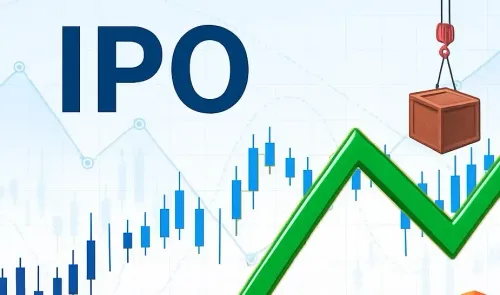Why Are Bank Deposits in South Korea Declining While Overdraft Loans Increase?

Synopsis
Key Takeaways
- Bank deposits in South Korea are rapidly decreasing.
- Households are increasingly utilizing overdraft loans for investments.
- Demand deposits have fallen by 20.19 trillion won.
- Investments are shifting towards real estate and stocks.
- South Korean stocks have recently hit record highs.
Seoul, Oct 26 (NationPress) Bank deposits in South Korea have been decreasing significantly, with households turning to overdraft loans to secure funds for investments as real estate and stock prices continue to surge, recent data revealed on Sunday.
As of Thursday, the combined demand deposits at five leading banks -- KB Kookmin, Shinhan, Hana, Woori, and NH NongHyup -- totaled 649.53 trillion won ($451.3 billion), which is a decrease of 20.19 trillion won since the end of September, according to bank data reported by Yonhap news agency.
This indicates an average daily outflow of 877.9 billion won, with predictions suggesting deposits could drop by approximately 27 trillion won by the month’s end, representing the most significant decline in 15 months since July 2024.
A considerable amount of these demand deposits is estimated to have been funneled into the real estate and stock markets given the recent investment surge, as indicated by officials.
The trend of rising household loans is primarily driven by credit loans linked to overdraft accounts, especially since recent regulations have made it more challenging to obtain home-backed loans.
The credit lines at these five major banks reached a total of 104.52 trillion won, reflecting an increase of 713.4 billion won from 103.81 trillion won at the end of September.
Remarkably, the balance of overdraft accounts surged by 530.9 billion won, increasing from 38.79 trillion won at the end of last month, marking the largest jump since August 2024.
In the meantime, South Korean stocks experienced a significant rise on Friday, achieving another record high due to robust gains in technology shares. Investor sentiment was bolstered by news of an impending summit between the leaders of the United States and China. The Korean won also strengthened against the US dollar.
The benchmark Korea Composite Stock Price Index (KOSPI) rose by 96.03 points, or 2.5 percent, closing at 3,941.59.
Trading volume was steady at 419 million shares worth 17.6 trillion won ($12.2 billion), with gainers outnumbering losers 474 to 407.
Institutions and foreign investors bought shares worth 1.4 trillion won and 581.5 billion won, respectively, while retail investors sold off a net of 2 trillion won.










